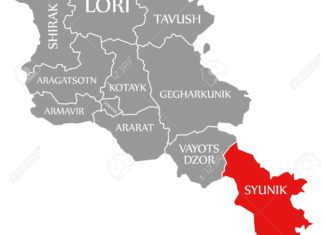A Ukraine-based political analyst called Oleg Sahakyan has made a significant statement about Armenia during an interview with an online news outlet in Ukraine. The analyst said that he believes that Armenia has been making major strides on the international political front, based on the deals Armenia has signed with Cyprus and Greece. Sahakyan sees Armenia emerging from its weak post-Soviet status to take a new role in the international tableau.
That belief is also being reinforced in the convictions of the Velvet Revolutionaries who believe that adhesion to democratic norms will yield its rewards in the country’s international relations, particularly after Prime Minister Nikol Pashinyan’s successful trips to China and Singapore.
Now Armenia has set its eyes on the West. Still insisting that Armenian-Russian relations remain on solid ground, Yerevan has ruffled some feathers in the Kremlin hierarchy. The new administration in Armenia believes the new democratic credentials and subliminally perceived anti-Moscow actions deserve some rewards in the West.
There are also hired guns in Armenia’s news media constantly harping on anti-Russian rhetoric in tune with the country’s domestic and international policies
All those assumptions have convinced Pashinyan’s administration to embark on a charm offensive in the West, and particularly in the US, to test the political waters and to assess the diplomatic clout of the Armenian lobby.
Two of the brightest minds of Armenia’s new breed of leaders were dispatched to the US during July, heading their respective delegations. One delegation was headed by Deputy Prime Minister Tigran Avinyan and the other by National Assembly Speaker Ararat Mirzoyan. The Armenian representatives managed to have substantial meetings with the leadership of the Democratic and Republican parties, Nancy Pelosi and Mitch McConnell, respectively, who in the past have supported Armenian issues. In addition, Mirzoyan attended the National Democratic Leadership Conference and Aviyan met with banking and business leaders.








